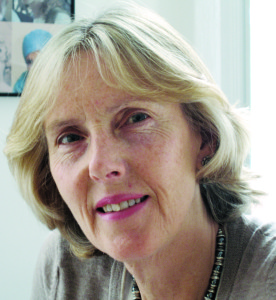 Rest easy in your beds overworked doctors and ailing patients, for tomorrow, all will be well. Big data will revolutionise healthcare. Processes in creaky health systems will be streamlined, patients empowered, and outcomes improved. Upbeat messages permeated the air at the UK e-health meeting at Olympia in London this week (ukehealthweek.com). E-health is more a joined up state of mind than a technology, a tweeter observed, and a smorgasbord was on offer. It included workshops on service transformation and informatics priorities, best practice cafes, “future zones,” “digital plenaries,” and numerous tech company stands. The programme listed 501 in total. Some with enticing names, such as Clarity Informatics and Co–ordinate My Care. But frustration was in the air too….
Rest easy in your beds overworked doctors and ailing patients, for tomorrow, all will be well. Big data will revolutionise healthcare. Processes in creaky health systems will be streamlined, patients empowered, and outcomes improved. Upbeat messages permeated the air at the UK e-health meeting at Olympia in London this week (ukehealthweek.com). E-health is more a joined up state of mind than a technology, a tweeter observed, and a smorgasbord was on offer. It included workshops on service transformation and informatics priorities, best practice cafes, “future zones,” “digital plenaries,” and numerous tech company stands. The programme listed 501 in total. Some with enticing names, such as Clarity Informatics and Co–ordinate My Care. But frustration was in the air too….
In a session on population health, Nancy Mamo, managing director of health analytics at Blue Cross and Blue Shield in the US, described how the organisation collects and feeds back data to clinicians on utlilisation of services by patients with long term conditions. These data are used to calculate risk scores and identify gaps in individual patients’s care. Back in the old days of paper, she said, our “doctors mostly trashed the information we sent them.” But now they “get excited” by health analytics, “for they see their value to patients” and the opportunity it brings to improve the quality of care.
Beverley Bryant, director of strategic systems and technology at NHS England, almost sighed with envy at Mamo’s description of joined up data being used to improve patient care. The NHS, she admitted, has not only made a little progress on this front but has actually “gone backwards.” But she was quick to conjure a vision of what the NHS would achieve in the future. Mike Pringle, president of the Royal College of General Practitioners, was more trenchant.
“The tragedy of our time is that patients are suffering because we can’t communicate information in the clinical records across sites…our records are not joined up…and we are not protecting patients from harm.” He described the failure of care.data as “an avoidable tragedy,” an “own goal” where “we blew patient” and public trust. He went on to advocate for patients to be given the tools they need to take more control of their health and use their records to help manage their own healthcare.
Muir Gray, chief knowledge officer at the Department of Health, also advocated empowering patients and suggested “warfare from the ground up” with respect to e-health. Small things could make a difference, he suggested, such as sending lab results to patients and including links to trusted online information resources in the letters patients get sent from doctors. He also advocated more sharing of lessons from e-health projects which go pear shaped, rather than focusing only on success stories.
Farhan Amin, a GP from Barrow-in-Furness spoke of his frustration about the status quo in the NHS which sees private companies holding data and refusing to share it. The current reliance on private e-heath investors was, speakers agreed, the result of past government incompetence which had resulted in a “broke NHS IT system.”
UK e-health week’s strapline—“unleashing the power of e health”—was suitably ambitious. But can policy makers and tech companies deliver the dream? Doctors and patients, e-savvy, innovative, Luddites, and technophobes alike, must live in hope, but must accept that much of this smacks of CS Lewis’s interpretation of “jam tomorrow.”
Tessa Richards is senior editor/patient partnership, The BMJ.